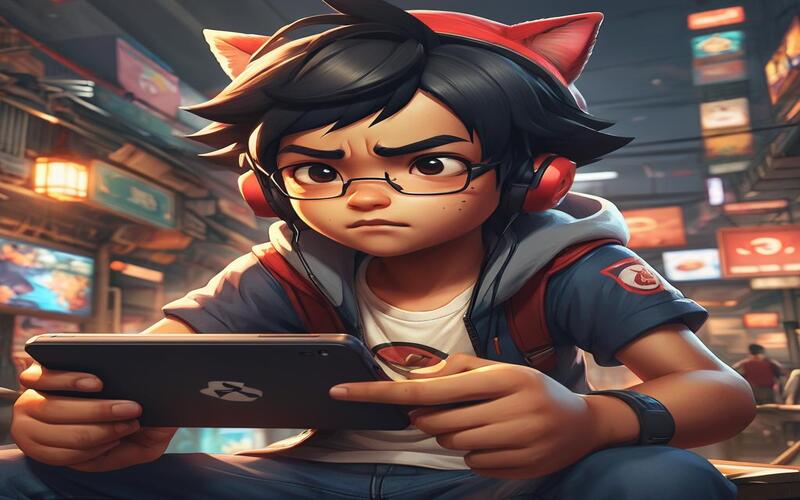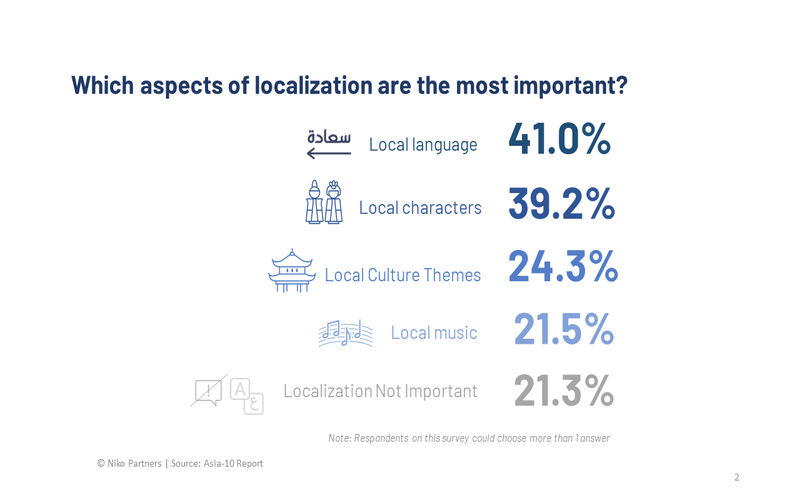
Indonesia's Gaming Industry: The Importance of Localization for International Developers
Indonesia's Gaming Industry: The Importance of Localization for International Developers

Indonesia's massive population and developing gaming marketplace offer huge potential for foreign game creators. To compete in this market, developers should understand the importance of localization and how it could help them connect with Indonesian gamers.
The Growing Gaming Market in Indonesia
Indonesia's gaming industry has expanded dramatically in recent years. The country and youthful population, coupled with the developing utilization of smartphones and the internet, provide access to a sizable marketplace for video games. According to Google and Temasek's studies, the Indonesian gaming business is expected to reach a value of $1.2 billion by 2025, with a compound annual growth rate (CAGR) of 14.5% from 2020-2025.
The need for localization.
While the Indonesian gaming business has massive potential, overseas companies have to adjust their games to suit the local target audience. Localization involves modifying a game to be culturally appropriate and accessible to a specific region. In Indonesia, this involves translating game content, adjusting game mechanics to suit local preferences, and incorporating local cultural elements.
Benefits of localization
Localization offers various advantages for foreign game creators in Indonesia:
- Increased Player Engagement: By making a game culturally relevant, creators can enhance player engagement and retention. Indonesian gamers are more likely to enjoy games that reflect their traditions and beliefs, leading to greater satisfaction and commitment.
- Competitive Advantage: Localization can provide a significant edge for international developers in the Indonesian market. Offering translated versions of their games allows developers to differentiate themselves from competitors and capture a larger market share.
- Improved User Experience: Localization ensures that the game is easier to understand and navigate for Indonesian players. This can lead to overall higher user satisfaction, reduced player dissatisfaction, and increased positive word-of-mouth.
Best Practices in Localization
To successfully localize a game for the Indonesian market, creators should adhere to the following best practices:
- Conduct market research. Conduct extensive research to better understand Indonesian gaming interests, cultural norms, and language.
- Translate game stuff: Translate game text, dialogue, and other content into Indonesian.
- Adapt game mechanics: Customize game mechanics to suit local preferences, such as adjusting difficulty levels or integrating local cultural features.
- Test and refine: Test the localized game with Indonesian players and refine it based on their feedback.
Key components of an effective game translation plan in Indonesia

Based on Figure above from the Asia 10 report, successful localization for the Indonesian market requires the following critical elements:
- Deep Cultural Adaptation:
- Understanding Nuances: Jokes, allusions, and evendesigns can have distinct connotations between different countries. Indonesian game localization experts understand these elements and can tailor them according to the preference of your local audience.
- Visuals are crucial. Gamers can be motivated through character designs, clothing, and color palettes. Adapting visuals to local preferences can enhance immersion.
- Prioritize Language Accuracy:
- Native speakers: To provide accurate and culturally suitable translations, make sure that the translators are local speakers who know gaming terminology.
- Gaming Expertise: Translators must be knowledgeable with gaming vocabulary to specify meaning within the game.
- Seamless User Interface and Experience (UI/UX):
- UI Adaptation: To offer a visually beautiful experience, regulate text lengths to fit Indonesian language and assure font compatibility.
- Modified UI Elements: To facilitate navigation, buttons, menus, and icons should be translated into Indonesian.
- Localized Marketing:
- Utilize Local Platforms: This includes marketing the game on prominent Indonesian social media channels consisting of Instagram, TikTok, and Twitter (X).
- Collaborate with Local Influencers: Work with Indonesian gaming influencers to reach a larger target audience and gain credibility.
- Localized Marketing Materials: Customize advertising materials, trailers, and website content material to attract the Indonesian marketplace.
- Avoid common errors:
- Literal Translations: Avoid literal phrase-for-phrase translations, which may sound artificial or incoherent.
- Ignoring Regional Dialects: Consider nearby variances to improve relatability and minimise unintended false impressions.
- Underestimating the power of testing: Test the translated game with Indonesian audiences to detect any cultural errors or fallacious wording.
- Neglecting Cultural Sensitivities: Recognize local sensitivity and save yourself from cultural mistakes.
- Overlooking visual cues: Adapt menus, icons, and currency symbols appropriate for the Indonesian market.
- Ignoring Marketing Localization: Localize your marketing initiatives to ensure that you reach your intended audience.
By implementing these steps and avoiding commonn mistakes, game developers can create a culturally appropriate and immersive gaming experience for Indonesian gamers, resulting in bigger business success.
In conclusion, Indonesia's gaming industry presents significant opportunities for foreign game developers. To succeed in this market, developers must understand the value of localization in connecting with Indonesian players. By adapting their games to local tastes, cultural norms, and language, developers can increase player engagement, gain a competitive advantage, and enhance overall user experience.
Deep cultural adaptation, language accuracy, seamless UI/UX, localized marketing, and avoiding common mistakes are crucial elements of a successful game localization strategy for Indonesia. Developers should also be mindful of potential challenges such as cultural sensitivities, linguistic complexity, visual adaptation, marketing issues, and testing/quality assurance.
Developers can overcome these challenges by collaborating with local experts, conducting thorough research, and continuously refining their approach, thereby creating a culturally appropriate and engaging gaming experience for Indonesian gamers. Ultimately, a well-localized game can help creators capitalize on Indonesia's vast gaming market and achieve long-term success.